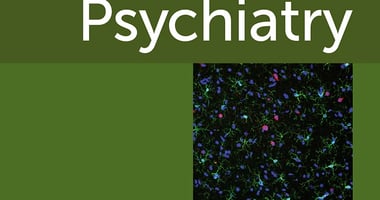Four of the articles chosen as the NEJM Journal Watch Psychiatry’s top 10 most clinically important...
Researchers Estimate 1 in 13 People Worldwide Will Have Psychotic Experience Over Lifetime
 |
To determine the age of onset of psychotic experiences and the projected lifetime risk of such experiences, an international team of researchers led by John McGrath, M.D., Ph.D., of the University of Queensland in Brisbane, Australia, analyzed data collected as part of the World Health Organization World Mental Health surveys. A total of 31,261 adult respondents across 18 countries were asked questions about whether they had ever experienced hallucinations or delusions, the frequency of the psychotic experiences, and their age at the time the first experience took place.
Based on the responses to the survey, the researchers projected the lifetime risk for psychotic experiences to be 7.8% (indicating that approximately 1 in 13 people is expected to have one psychotic experience by the age of 75). The median age of onset for psychotic experiences based on projected lifetime estimates was 26 years, but the range of age of onset was wide (17 to 41 years). The researchers also found that those with more types of psychotic experiences had an earlier age of onset.
“Describing the AOO [age of onset] of PEs [psychotic experiences] alongside type and frequency metrics allows us to build a more nuanced understanding of how PEs relate to mental disorders across the lifespan. In particular, these metrics may provide an empirical framework to better understand shared and discrete features of PEs and clinical psychotic disorders,” the authors wrote.
The researchers added that age-related cognitive decline and/or aging-related sensory impairments may drive the emergence of psychotic experiences later in life, but noted that additional studies are needed to explore this relationship.
For related information, see the American Journal of Psychiatry author spotlight video in which McGrath describes his recent AJP study examining the bidirectional associations between psychotic experiences and mental disorders.
(Image: iStock/Maxiphoto)





